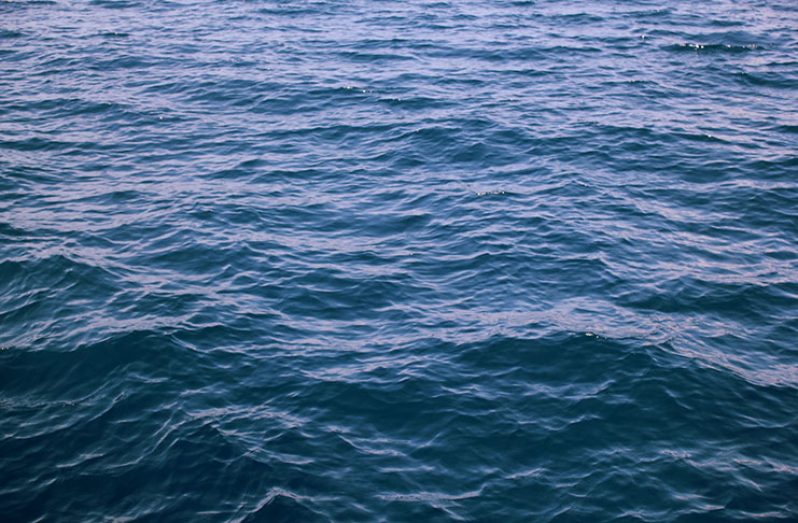By Jernej Videtič, Head of EU Delegation in Guyana
OCEANS are our lifeblood; our living standards, our economy, even our health depends on them. Oceans are fundamental to the very essence of life: they absorb 25% of the world’s CO2 and produce 70% of the oxygen we breathe. A billion people depend on seafood as the main source of protein. Algae are used in products from cosmetics to medicine. 90% of the world’s trade is seaborne. Energy from the oceans keeps our lights on and our homes warm.
Yet, all is not well. Pressures from climate change and marine pollution are putting our oceans under severe stress. Fish stocks are being depleted because of illegal fishing. Over 10 million tonnes of litter enter the ocean every year – and every single plastic bottle takes centuries to decompose. International waters risk becoming safe havens for criminal activity, whether it’s piracy, human trafficking, smuggling or illegal fishing.
It is time to stop taking our oceans for granted, and start taking better care of this precious resource. We all share a responsibility to keep our oceans healthy. Action is needed at a global level to stop destroying precious and delicate eco-systems that have taken millions of years to form.
The UN’s Sustainable Development Goals for 2030 include a goal, SDG 14, on conserving and sustainably using the world’s oceans, seas and marine resources. And the European Union is tackling this challenge head on. This week, we launched an initiative to improve the management of the world’s oceans. Over the past year, we have taken a close look at where the European Union can lead the way. The result is an agenda for the future of our oceans: a to-do list of measures we can take to ensure better managed oceans around the world.
The goal? To ensure that our oceans are safe, clean, secure, and sustainably managed by taking action in three priority areas: First, improving the institutional framework for managing the world’s oceans. Two-thirds of the oceans lie beyond the reach of national law. While the international rules framework itself goes a long way, the sheer vastness of the oceans means enforcement can be weak and patchy.
We want to strengthen the rule of law at sea, and we want fair rules that work for all — large countries and small. This means convincing more of our partners to sign up to existing treaties and instruments, and closing legal gaps – making sure everybody sticks to the agreed rules. It means working together with our partners to make oceans safer and more secure, free from piracy or human trafficking, maritime accidents and environmental disasters.
Second: reducing the effects of human pressure on the oceans and creating conditions for a sustainable blue economy. We want to use our oceans for economic gain, but without destroying them in the process.
Today, 15% of fish are caught illegally in a global industry worth billions. The European Union already monitors vessels and allows only traceable fisheries products to enter the European market. But there is more we can do, for instance using big data monitoring technologies, or strengthening the role of international control and enforcement agencies in detecting illegal fishing. In the race against unchecked global – and ocean – warming, we will seek joint international action to mitigate climate change: to protect and restore marine and coastal ecosystems which play a vital role in trapping CO2. The European Union has committed itself to setting aside substantial parts of its waters – 10% by 2020 – as protected ocean parks. Through twinning projects, research funds and exchange of best practices, we will push to expand such marine reserves worldwide.
And we will fight pollution and the “sea of plastic” by updating the rules on waste disposal for vessels, by adopting a new strategy on plastics in 2017, and by seeking global partnerships to identify and implement effective strategies against both plastic litter and micro-plastics.
Third: we plan to invest in ocean science. If we want to take effective and sustainable action, we need to improve what we know about the oceans. Developing international scientific partnerships is one way to do so. Collaborative EU initiatives, like a network of scientific data systems, have been great successes. Our next aim is to create a worldwide marine data network that is open to all. Today, a large proportion of the seabed remains unmapped, meaning we know less than we could.
These proposals are not just an action plan for the European Union; they are an open invitation to our partners around the world, including Guyana. The EU will be hosting the 2017 edition of the international “Our Ocean” conference in Malta in October next year. This will be an excellent opportunity for the global ocean community to come together, take stock of where we stand, and commit to ensuring that the world’s oceans are safe, clean, secure and sustainably managed – and how we tackle the challenges ahead.



.jpg)








